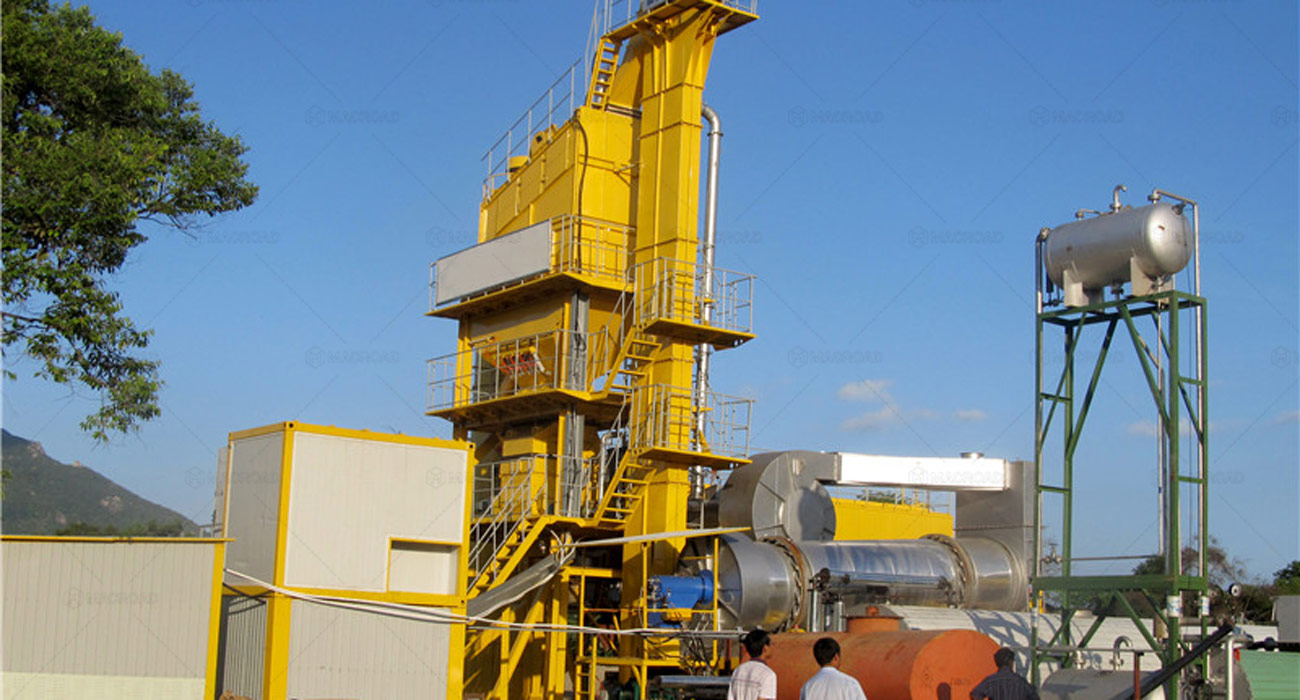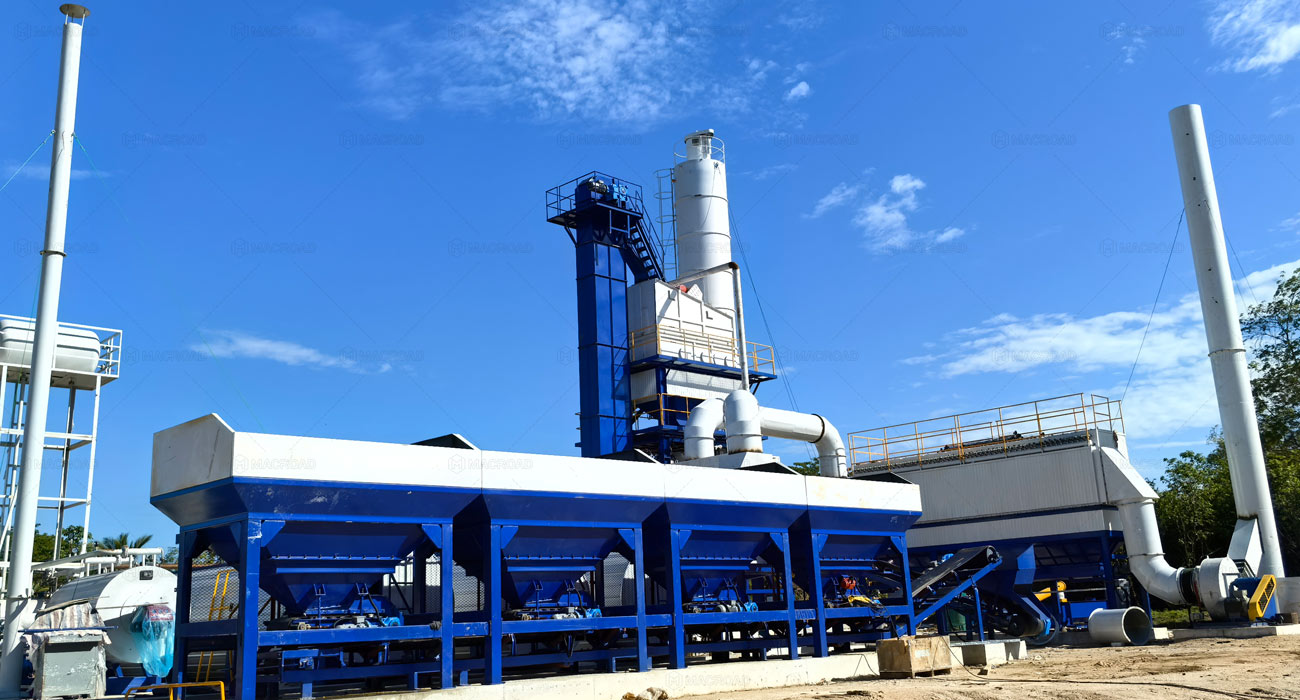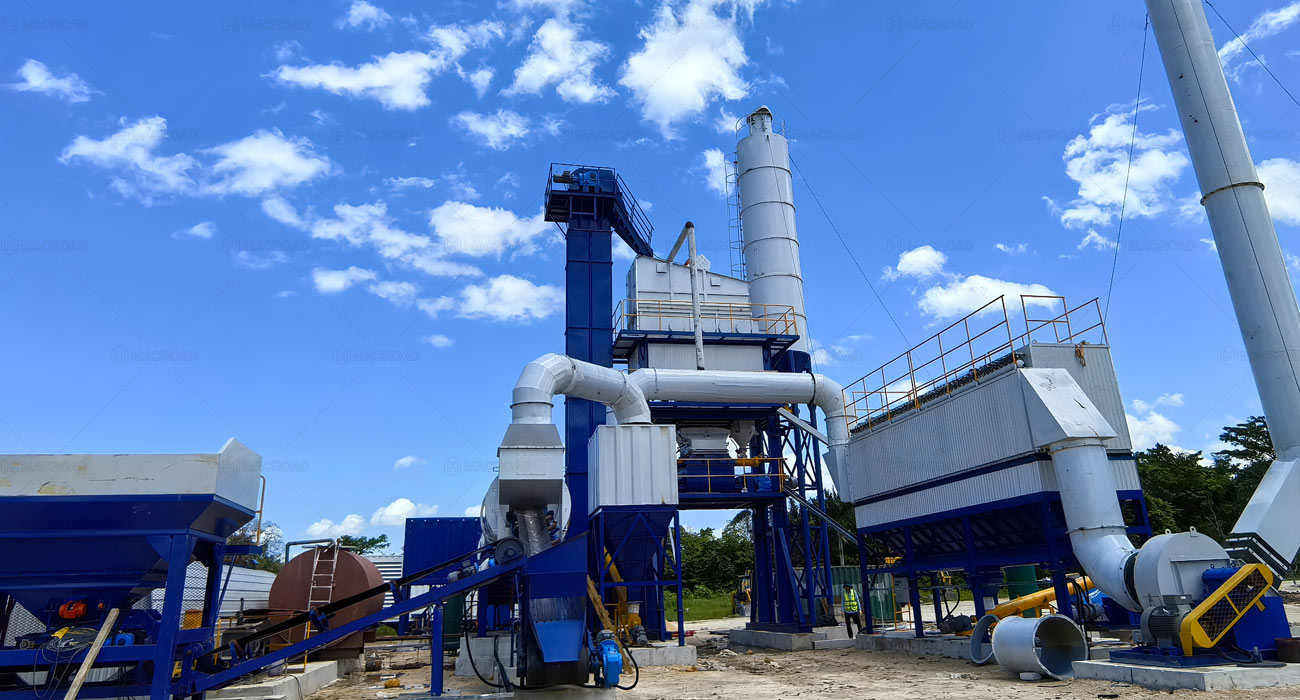In the asphalt production process, maintaining the correct heating temperature is crucial, especially when using asphalt pavement recycling equipment. Insufficient heating can lead to a variety of inefficiencies, including increased fuel consumption. This article examines how inadequate heating temperatures impact fuel usage in asphalt plants and emphasizes the importance of proper temperature management for optimal performance.

The Importance of Proper Heating Temperatures
Heating asphalt to the correct temperature is essential for ensuring that the materials mix effectively. When asphalt recycling plant equipment operates at insufficient temperatures, several problems can arise. For instance, the binder may not fully blend with the aggregates, leading to a poor-quality mix that is more susceptible to damage and wear.

In a stationary asphalt plant, where production schedules are tight and efficiency is paramount, even minor deviations in temperature can result in significant fuel waste. When the heating temperature is too low, the plant may require additional fuel to achieve the desired working temperature, resulting in higher operational costs. This situation can be particularly challenging for asphalt mix plant manufacturers focused on maximizing efficiency and maintaining competitive pricing.
Consequences of Increased Fuel Consumption
The implications of increased fuel consumption due to insufficient heating temperatures are multifaceted:
- Higher Operational Costs: When more fuel is consumed, For the asphalt plant price factors analysis, the overall asphalt plant cost increase. This can lead to budget overruns and reduced profitability, especially in competitive markets where margins are already tight.
- Environmental Impact: Increased fuel consumption not only affects costs but also contributes to higher emissions. As asphalt plants face growing scrutiny over their environmental impact, inefficient heating practices can lead to regulatory challenges and increased pressure to adopt cleaner technologies.
- Quality Issues: Inadequate heating can compromise the quality of the asphalt mix. If the binder does not reach the appropriate viscosity, the final product may exhibit reduced performance characteristics, such as lower durability and increased vulnerability to cracking.
To avoid these issues, asphalt plant operators must ensure that their heating systems are functioning optimally and that temperatures are closely monitored throughout the production process.

Best Practices for Maintaining Optimal Heating Temperatures
To mitigate the risks associated with insufficient heating temperatures, asphalt plant operators can adopt several best practices:
- Regular Calibration and Maintenance: Ensuring that heating equipment is regularly calibrated and well-maintained is essential for achieving consistent temperatures. Routine checks can help identify issues before they escalate into more significant problems.
- Training for Staff: Providing training for plant personnel on the importance of maintaining proper heating temperatures can enhance operational efficiency. Staff should be aware of how temperature affects fuel consumption and product quality.
- Investing in Technology: Utilizing advanced monitoring systems can help track heating temperatures in real time. These systems can alert operators to deviations from set points, allowing for quick adjustments to minimize fuel waste.
- Choosing the Right Equipment: When selecting asphalt plant equipment, operators should consider the efficiency of heating systems. An asphalt plant supplier like Macroad can provide insights into the most effective technologies available, ensuring that plants are equipped to maintain optimal temperatures.
In conclusion, insufficient heating temperatures in asphalt pavement recycling equipment can significantly increase fuel consumption, leading to higher operational costs and compromised product quality. By prioritizing proper heating practices and adopting best practices in maintenance and training, asphalt plants can improve their efficiency and reduce their environmental impact. For those looking to invest in asphalt mix plant technology, understanding these factors is crucial for making informed decisions that align with operational goals.